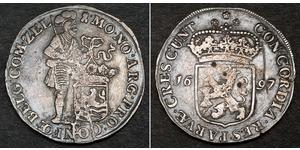[ 5270] BYZANTINE - BASIL I, the Macedonian, with Constantine (868-879) Reference: DOC III 2a; SB 1704. Gold Solidus (21mm, 4.42 grams) Constantinople, 868-879 A.D. Christ enthroned facing holding book of the Gospels and raising His Hand in benediction. Crowned busts of Basil, wearing chlamys, holding patriarchal cross between them. Provided with certificate of authenticity. CERTIFIED AUTHENTIC by Sergey Nechayev, PhD - Numismatic Expert Basil I, called the Macedonian (Greek: Βασίλειος ὁ Μακεδών, Basíleios hō Makedṓn; 830/835 – 29 August 886) was a Byzantine emperor of Armenian descent who reigned from 867 to 886. Born a simple peasant in Thrace, he rose in the imperial court, and usurped the imperial throne from Michael III. Despite his humble origins, he showed great ability in running the affairs of state, leading a revival of imperial power and to a renaissance ofByzantine art. He was perceived by the Byzantines as one of their greatest emperors, and the dynasty he founded, the Macedonian (Greek: Μακεδονική δυναστεία), ruled over what is regarded as Byzantium's most glorious and prosperous era. From peasant to emperor Basil was born to Armenian parents in the 830s in the Byzantine theme of Macedonia (an administrative division corresponding to the area of Adrianople in Thrace). While one source has claimed him to be of Slavic descent, such assumptions have been dismissed as fiction by the scholarly world. The sole foundation of the Slavonic theory is that Arabic writers designate him as a Slav; this is explained by the Arabic view that all Macedonians were Slavs. Basil's first language was Armenian, and he spoke Greek with a heavy accent. A later story asserted that he had spent a part of his childhood in captivity in Bulgaria, where his family had, allegedly, been carried off as captives of the Khan Krum in 813. Basil lived there until 836, when he and several others escaped to Byzantine-held territory in Thrace. Basil was ultimately lucky enough to enter the service of Theophilitzes, a relative of the Caesar Bardas (the uncle of Emperor Michael III), as groom. While serving Theophilitzes, he visited the city of Patras, where he gained the favor of Danielis, a wealthy woman who took him into her household and endowed him with a fortune. He also earned the notice of Michael III by winning a victory over a Bulgarian champion in a wrestling match, and soon became the emperor's companion and bodyguard (parakoimomenos). On Michael's orders, he divorced his wife Maria and married Eudokia Ingerina, Michael's favorite mistress in around 865. It was commonly believed that Leo VI, Basil's successor and reputed son, was really the son of Michael. Although Basil seems to have shared this belief (and hated Leo), the subsequent promotion of Basil to Caesar and then co-emperor provided the child with a legitimate and imperial parent and secured his succession to the throne. During an expedition against the Arabs, Basil convinced Michael III that his uncle Bardas coveted the throne, and murdered Bardas with Michael's approval on April 21, 866. Now Basil became the leading personality at court and was invested in the now vacant dignity of kaisar (Caesar), before being crowned co-emperor on May 26. This promotion may have included Basil's adoption by Michael III, himself a much younger man. As Michael III started to favor another courtier, Basil decided that his position was being undermined and preempted events by organizing the assassination of Michael on the night of September 23/24, 867. Reign Basil I inaugurated a new age in the history of the empire, associated with the dynasty which he founded, the so-called "Macedonian dynasty". This dynasty oversaw a period of territorial expansion, during which the empire was the strongest power in Europe. Domestic policies To secure his family on the throne, Basil I raised his eldest son Constantine (in 869) and his second son Leo (in 870) to co-emperors. Be ...
Mehr...

|
Beigetragen von:
anonymous 2015-08-18 |
Similar Coin Groups
2025-06-14
- New coin is added to 1/2 Farthing Vereinigtes Königreich von Großbritannien und I ...
1/2 Farthing Vereinigtes Königreich von Großbritannien und I ...
Diese Gruppe hat 9 Münzen / 8 Preise
⇑
Great Britain - 1/2 Farthing 1844 - Victoria
2025-05-25
- New coin is added to 1 Ducat Republik der Sieben Vereinigten Provinzen (1581 - 17 ...
1 Ducat Republik der Sieben Vereinigten Provinzen (1581 - 17 ...
Diese Gruppe hat 10 Münzen / 9 Preise
⇑
1697, Netherlands, Zeeland Province. Large Silver Knight Ducat Coin. Damaged! Mint Year: 1785 Denomination: Silver Knight Ducat Province: Zeeland (mint mark: castle) Reference: Davenport 49 ...
Das könnte Sie auch interessieren:

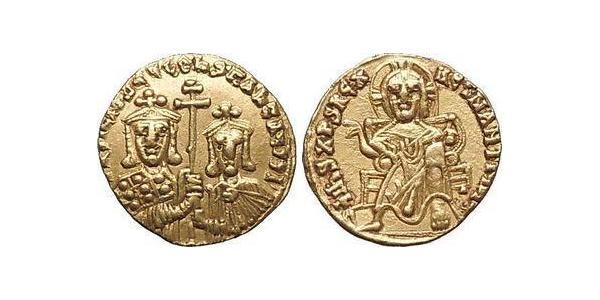





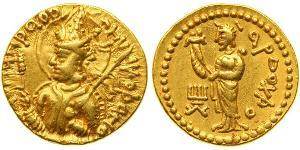
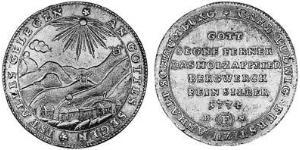



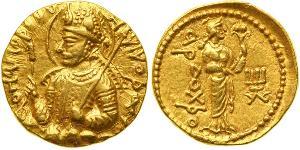
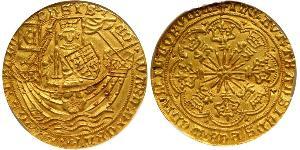
-300-150-YYnBwcI0woEAAAEnE4RaOLOG.jpg)
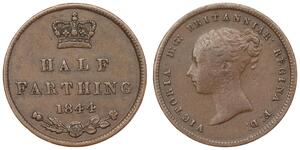
-300-150-nf4K.GJAcbQAAAEu7g61Lgu3.jpg)
